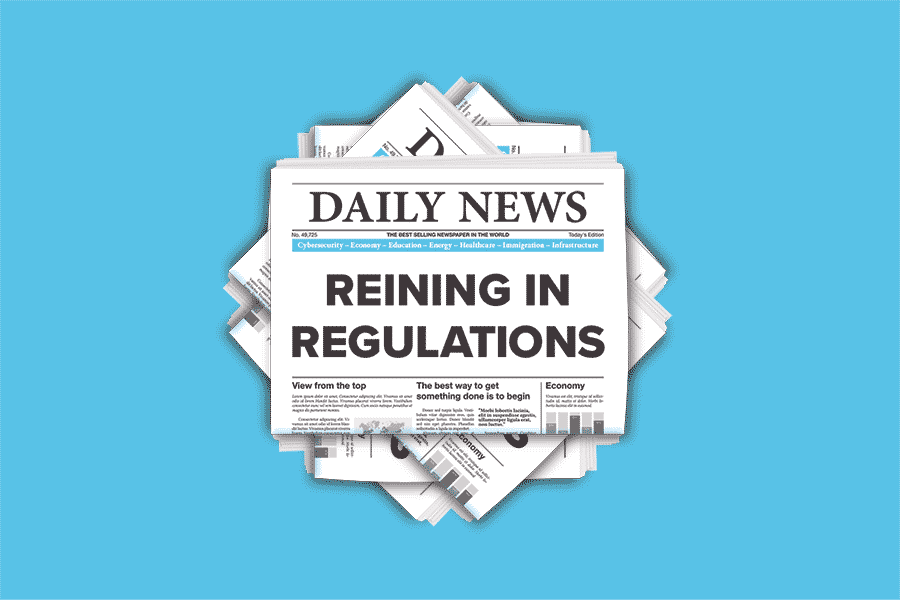Regulations

Smart regulations give businesses the rules of the road so they can operate, innovate, and invest with certainty. Regulatory overreach, on the other hand, stifles growth and innovation. Getting this balance right is essential to driving solutions that improve lives and fostering a vibrant and dynamic economy that creates opportunities for people.
Latest
Become a part of the world’s largest business organization and network
U.S. Chamber members range from small businesses and chambers of commerce across the country to startups in fast-growing sectors, leading industry associations, and global corporations.
Discover the ROI Chamber membership can deliver for you.
Our Work
The U.S. Chamber works with governments at the state, federal, and global levels to create a regulatory environment in which businesses can innovate, compete, and thrive. From labor and finance to technology and energy regulations, we ensure the voice of business is represented in the rulemaking process. When rules are outdated, outmoded, or overreaching, we work to improve or eliminate them in the agencies, in Congress, or in the courts.
Latest Content
Rulemaking Under Previous Administration was Rushed, Lacked Transparency and Full Participation WASHINGTON, D.C. — U.S. Chamber of Commerce Senior Vice President of Environment, Technology, & Regulatory Affairs William Kovacs issued the following statement today after the Trump administration announced it is re-opening a review of vehicle fuel efficiency standards through Model Year 2025:
The U.S. Chamber of Commerce is pleased to share this report. The Chamber and its members have long been committed to aligning trade, regulatory and competition policy in support of open and competitive markets. In recent years, however, the Chamber has grown concerned with disparate approaches to antitrust enforcement around the world and increasingly misguided uses of antitrust as a means to achieve industrial policy outcomes.
The U.S. Chamber of Commerce welcomes a report issued today by an independent group of experts it commissioned to consider U.S. responses to the inappropriate use of antitrust enforcement actions worldwide to achieve industrial policy outcomes. In preparing the report, the group drew upon its members’ decades of experience in competition, trade, and economic policy in deliberations independent of the Chamber.
Dear Chairman Smith and Ranking Member Johnson: The U.S. Chamber of Commerce supports the “Honest and Open New EPA Science Treatment (HONEST) Act of 2017” and the “EPA Science Advisory Board Reform Act of 2017.” These bills would improve the transparency and reliability of scientific and technical information that Federal agencies rely heavily upon to support new regulatory actions.
Dear Representative Walberg: The U.S. Chamber of Commerce applauds you, as the original sponsor of H.R. 1004, the “Regulatory Integrity Act of 2017,” for your leadership on regulatory reform issues. The Regulatory Integrity Act would prevent federal agencies from improperly lobbying the public to support regulatory actions designed to expand the scope of an agency’s own authority. Agencies must be transparent, accountable, and fair in their regulatory actions.
Dear Senators Blunt and King: The U.S. Chamber of Commerce applauds you and the original cosponsors of the “Regulatory Improvement Act” for your leadership on regulatory reform issues. Moreover, we salute your collective efforts to ensure that regulatory reform is a bipartisan effort.
EPA and the Army Corps of Engineers are ordered to review and potentially withdraw the 2015 regulation.
Business Community Pleased to See “Federal Land Grab” Reconsidered
Let's take a moment to look at what the president has done and what he should do in the months ahead to help our economy grow faster.
After an eight-year regulatory onslaught that loaded unprecedented burdens on businesses and the economy, relief is finally on the way.
















